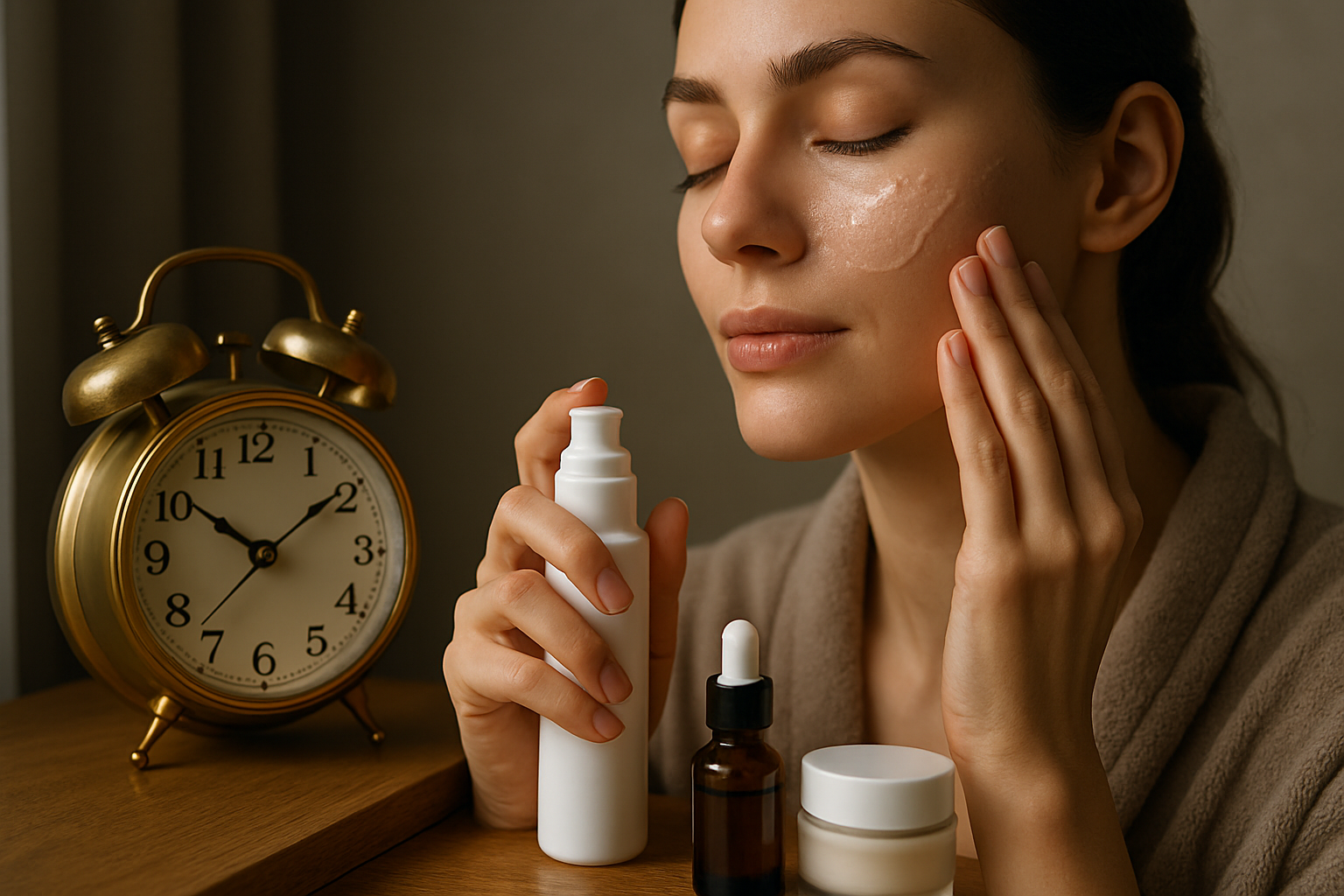Beauty Sleep Rituals: Nocturnal Skincare Revolution
In the realm of beauty and wellness, a nocturnal revolution is quietly unfolding. As the world slumbers, a growing number of skincare enthusiasts are embracing the transformative power of nighttime beauty routines. This innovative approach to skincare harnesses the body's natural circadian rhythms, optimizing cellular repair and regeneration during sleep. Far from being a fleeting trend, these nighttime beauty rituals are rooted in scientific understanding of skin physiology and the body's restorative processes. As we delve into this fascinating world of nocturnal skincare, we'll explore how these rituals are reshaping our approach to beauty and unlocking the potential for radiant, rejuvenated skin.

Moreover, the skin’s barrier function, which protects against moisture loss and environmental stressors, is most active during sleep. This heightened state of repair and renewal makes nighttime an ideal opportunity for targeted skincare interventions. By aligning our beauty routines with these natural biological processes, we can maximize the efficacy of our skincare products and treatments.
Research has shown that skin cell regeneration almost doubles at night, peaking between 11 PM and 4 AM. This accelerated cell turnover makes nighttime an optimal window for applying active ingredients that support skin renewal and repair.
Evolution of Nighttime Skincare
The concept of nighttime-specific skincare is not entirely new. Ancient civilizations recognized the importance of sleep for beauty and health. Cleopatra, for instance, was said to sleep with a gold mask to maintain her legendary beauty. However, the modern approach to nocturnal beauty rituals is far more sophisticated and scientifically grounded.
In the early 20th century, the beauty industry began to acknowledge the distinct needs of skin during nighttime. The introduction of cold creams and night creams marked the beginning of specialized nocturnal skincare. These products were designed to provide intense hydration and nourishment while sleeping.
As our understanding of skin biology advanced, so did the formulations of nighttime skincare products. The 1980s and 1990s saw the rise of retinol-based night creams, harnessing the power of vitamin A derivatives to combat signs of aging. This period also witnessed the emergence of alpha-hydroxy acids (AHAs) in night treatments, promoting cellular turnover and skin renewal.
The 21st century has ushered in a new era of nocturnal skincare, characterized by highly targeted treatments, innovative delivery systems, and a holistic approach that considers not just the skin, but the entire sleep experience.
Cutting-Edge Nocturnal Beauty Technologies
Today’s nighttime beauty rituals leverage advanced technologies and formulations to optimize skin health during sleep. One of the most exciting developments is the use of chronobiology in skincare. This approach tailors product formulations and application times to the skin’s natural circadian rhythms, ensuring that active ingredients are delivered when the skin is most receptive.
Encapsulation technology is another breakthrough in nocturnal skincare. This method involves encasing active ingredients in microscopic capsules that gradually release their contents over time. This controlled release ensures that beneficial compounds are delivered throughout the night, maintaining their efficacy and reducing potential irritation.
Smart textiles are also making their way into nighttime beauty routines. Pillowcases and sleepwear infused with skincare ingredients like copper oxide or silver nanoparticles claim to fight wrinkles and bacteria while you sleep. While more research is needed to fully validate these claims, they represent an innovative intersection of textile technology and skincare.
The Rise of Sleep-Enhancing Beauty Products
Recognizing the integral role of quality sleep in skin health, the beauty industry has expanded its focus beyond traditional skincare to include products that promote better sleep. This new category of “sleep beauty” products aims to create an optimal environment for restorative sleep, indirectly benefiting skin health.
Aromatherapy-based products, such as pillow mists and diffuser blends, have gained popularity for their ability to create a calming bedtime atmosphere. Ingredients like lavender, chamomile, and ylang-ylang are frequently used for their sleep-inducing properties.
Ingestible beauty supplements designed to be taken before bed are another growing trend. These formulations often combine traditional sleep aids like melatonin with skin-supporting nutrients such as collagen peptides, hyaluronic acid, and antioxidants. The concept is to support both sleep quality and skin health simultaneously.
Customized Nocturnal Skincare Routines
As the field of nocturnal skincare evolves, there’s a growing emphasis on personalization. Recognizing that no two individuals have identical skin needs or sleep patterns, beauty brands are offering customized nighttime skincare regimens.
These personalized approaches often begin with detailed skin analysis and sleep habit assessments. Factors such as skin type, concerns, age, lifestyle, and even geographical location are taken into account. Some companies are utilizing artificial intelligence and machine learning algorithms to analyze this data and formulate bespoke nighttime skincare routines.
The resulting customized routines might include a combination of topical products, ingestible supplements, and lifestyle recommendations. For instance, someone with dry skin and irregular sleep patterns might receive a routine that includes intensely hydrating night creams, sleep-promoting supplements, and suggestions for optimizing their sleep environment.
The Future of Nocturnal Beauty
As we look to the future, the field of nocturnal beauty is poised for further innovation. Wearable technology is likely to play a significant role, with devices that can monitor skin conditions and sleep quality in real-time, adjusting skincare recommendations accordingly.
Advances in chronobiology may lead to even more precisely timed skincare interventions, with products designed to be applied or activated at specific points during the sleep cycle. We may also see the development of “smart” skincare products that can sense and respond to changes in the skin’s condition or the surrounding environment during sleep.
The integration of nocturnal beauty rituals with overall wellness practices is another trend on the horizon. This holistic approach might combine skincare with sleep hygiene, nutrition, stress management, and even exercise routines tailored for optimal nighttime recovery.
As our understanding of the intricate relationship between sleep and skin health deepens, we can expect to see increasingly sophisticated and effective nocturnal beauty solutions. These advancements promise to transform not just our skin, but our entire approach to beauty and well-being, making the most of those precious hours when we’re fast asleep.




